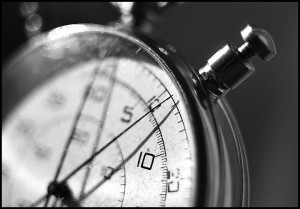A Loyal Reader Writes:
A comment was made in your video interview with Ray Edwards that perked my ears up. It was about hurt and anger.
I was beached back in February. I have 29 years in this business. I started part-time and did all the grunt work. Worked 80 hour weeks, sacrificed vacation time, pulled extra shifts when other jox didn’t show up. Worked my way up to MD to APD and finally to PD and the hours and work just got heavier.
But it was allllllll GREAT because I looooved it.
The past 15 years I’ve done mornings, sacrificing my health and sleep and family time. I’ve moved my family all over this country and they were ok with the fact that radio usually got the best of me and unfortunately, and they kinda got what was left over…but they knew I LOVED IT and everything about it.
Now….here I am. With all of this experience, enthusiasm, hard work and massive sacrificing for an industry that I absolutely adore and can’t get enough of. Why then, am I sitting out here feeling like it has turned its back on me?
In the past 7 months I have applied for over 46 on-air gigs (I have to keep count because of unemployment). I am OVER qualified for these jobs and they are getting snapped up by others with a fraction of the years I have in radio.
In any other industry, working your way up and to the top of ‘the ladder’ successfully for 30 years earns you the golden ticket! I feel like all those years I put in mean nothing and that breaks my heart and makes me sad….and yep, angry on some days.
I guess this is more of a rhetorical note as I don’t think there is an answer. And I KNOW, Lord I know, I am not the only one who feels this as there are LOADS of others just like me trying for that same job. I do know you understand that fire that radio put inside ones’ soul, and that you probably understand where I’m coming from.
As every day and week and month goes by, it’s getting easier to deal with it all and I’m even starting to apply for jobs outside of the radio industry, which breaks my heart too. But here is one question….how does one get past what feels like a big ol’ 30 year betrayal? Just wonderin’….
P.S. One of my ex-co-workers once told me “don’t love radio because it’ll never love you back.” He unfortunately told me this 28 yrs too late. I am getting over it, it’s just taking a little bit.
Meanwhile, I can’t wait to hear what you are working on!
Radio “turned its back on” you because it doesn’t know you exist.
To some extent, radio always has been an industry that eats its young. In North America, at least, “radio” and “job security” never appeared in the same sentence.
Yes, consolidation has made it situation much, much worse for radio programming staffers.
But you always were gambling that your hard work, loyalty and dedication somehow would reap worthy dividends down the road.
Ironically…sadly…Radio didn’t make those promises. You (and thousands of others) assumed The Radio Industry would take care of you. It seemed only right: Hard work leads to reward.
But Radio never promised you a long-term reward.
When U.S. radio deregulation began, the writing was on the wall. Group owners (and their lobbyists) swore to Congress, “With more radio stations, we’ll be able to serve our local communities so much better!
“If you drop that stupid News requirement, our stations actually will end up providing more local news. While you’re at, get rid of that ‘Public Affairs’ requirement. Of course we’ll continue to provide Public Affairs programming.”
If I knew local news would disappear from American music stations, why didn’t those big shot group owners know? Or…Gee, d’you suppose they just said that stuff to get the government to give them more freedom to do whatever they wanted, and they never really cared about serving local communities?
My point is not, “Hey, I saw it coming. Why didn’t you?” I’d already stopped working for radio stations.
In fact, my no longer being “in” radio probably gave me a clearer picture of the industry than I had when I was a radio station employee.
And I understand why so many people stood frozen for the dozen or so years during which Radio gradually set them adrift. During the Internet bubble and subsequent crash, I owned a stock that had shot WAY up…and then watched as it descended literally to nothing. I was too much in a state of shock to act. (A pathetic excuse for losing my entire investment, but…)
For people still working in radio: What are you doing to secure your future? Are you managing your career, or are you just showing up for work and hoping your crazy boss doesn’t fire you today?
If you’re out of radio and unhappy about it:
While of course it’s possible that you, personally, will land a good radio job again, most people in your position won’t. For them the question becomes, “What are you going to do about it? How are you going to take the skills and talents you honed in radio and apply them to a new career that you’ll find equally rewarding?”
As you heard in the interview with Ray, it is possible.
I didn’t say “easy.” But it’s not “difficulty” that stops so many people as much as fear.
If you’ve been deserted by radio and are fearful of your future, you have a choice: You can do nothing at all, because you’re afraid. Or you can take the first steps to build your own new career despite the fact that you’re afraid.
Meanwhile, I can’t wait to hear what you are working on!
I wish I could talk about it, but at the moment it looks like it’ll be December before I can reveal my Plan To Save Radio People. As soon as I’m able, I’ll announce the details in our Facebook group. It will change some people’s lives, and I sure do wish I could talk about right now…




